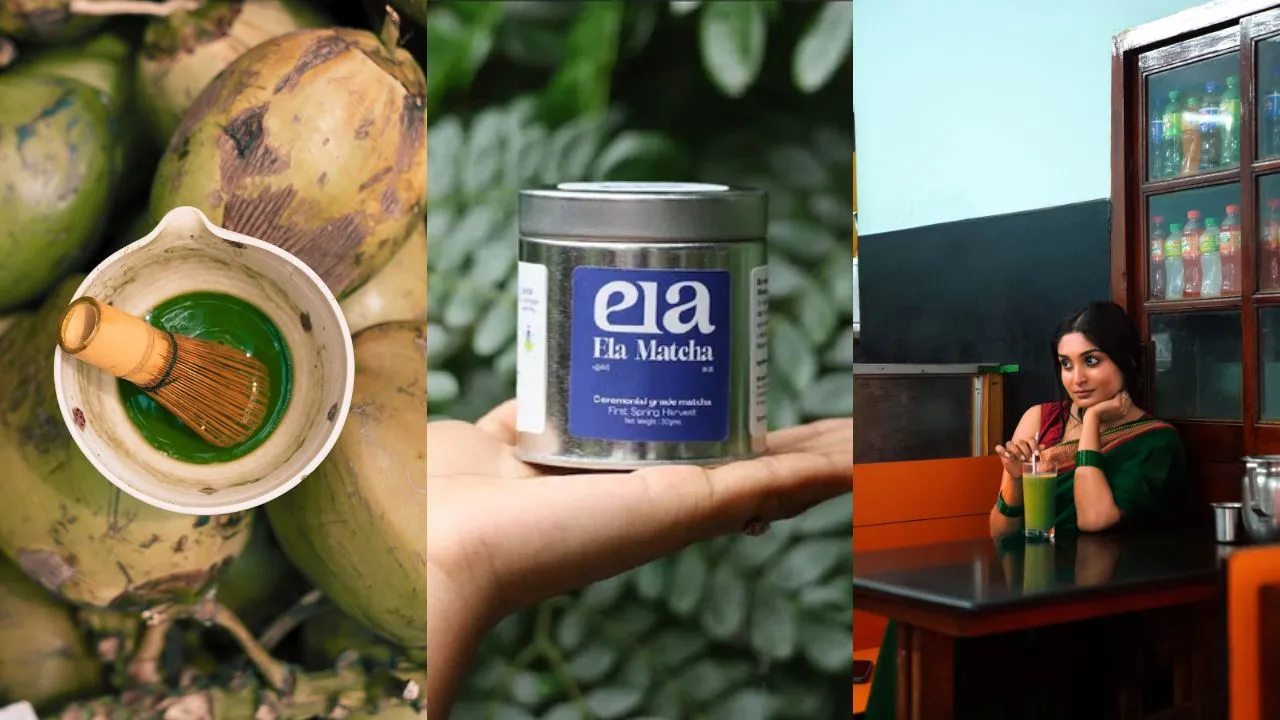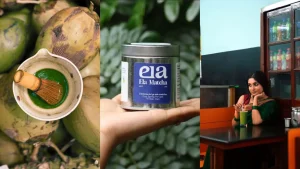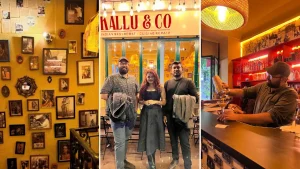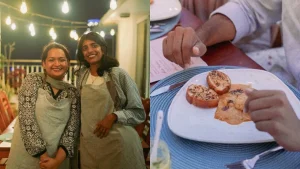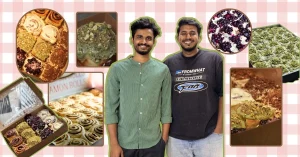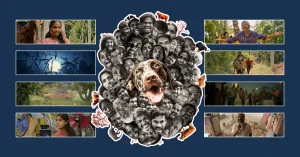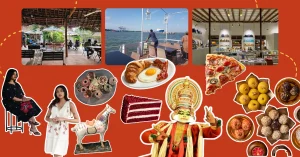When Rachel David first whisked a bowl of matcha in her kitchen during the lockdown, she did not expect it to become an important part of her life. As a Malayali who has always been a self-confessed coffee addict, she found something unexpected in the meditative process of making matcha. Today, her brand, Ela Matcha, based in Bangalore, is helping a new generation of Indians rediscover the joy of slowing down and the warmth of sharing conversations over a thoughtful cup of matcha.
I remember chuckling when Rachel told me she is a “hardcore coffee girl.” There was something deeply relatable about the way she expressed it, almost like she was confessing to an ingrained habit. She grew up in an environment where coffee was treated as a ritual. “More than milk, I used to drink coffee,” she told me, smiling at the memory. “My dad still has his black coffee every morning. At home, there’s always coffee brewing somewhere.“
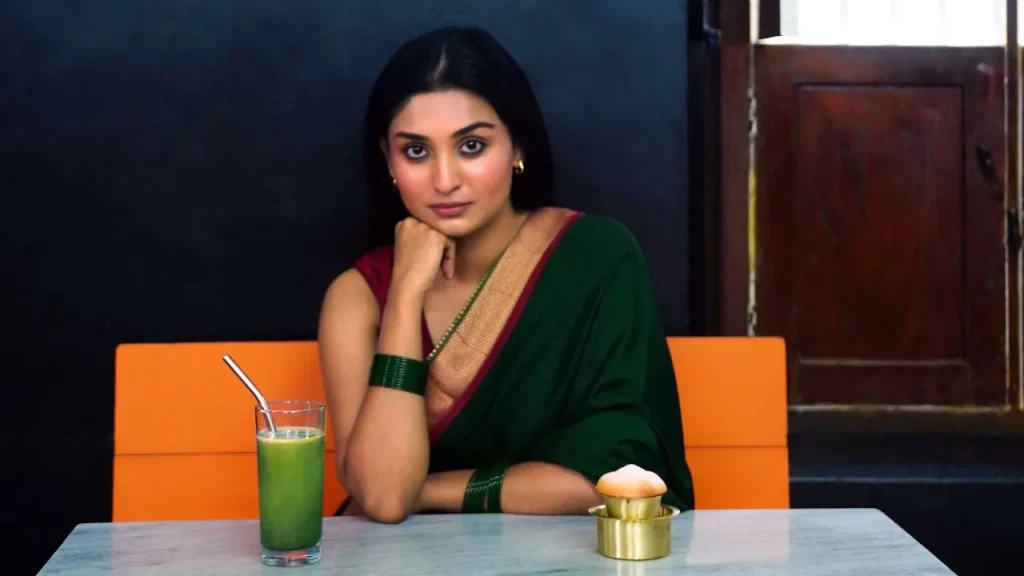
As she speaks to me, her memories unfold like a montage. Growing up, her mornings were spent getting ready for school, fueled by caffeine, late-night study sessions, dates at coffee shops, and long conversations that almost always involved coffee. “If I’m not at home, I’ll always be in a coffee shop,” she laughs. “Coffee was my safe space. I met people there, I fell in love there, and I conducted business there. It was everything.”
Also Read: Alcohol Brands Started By NRI Malayalis
Which is why it feels so ironic and maybe poetic that Ela Matcha was born from the same love for caffeine. Rachel never left coffee behind; she simply found another comfort. “Can you choose between Mammootty and Mohanlal?” she jokes. “You can’t. Some drinks fit moods, some fit seasons. Matcha just became another way for me to connect.”
The decision to start a matcha brand was partly strategic, partly cultural, but fully with heart. Coffee in India is a crowded, well-served market where families and decades of craft already have a stake. Matcha, in contrast, still felt new to an Indian palate. “I remember how Green tea took time to be accepted,” Rachel says. “Now people drink it with or without honey. Matcha is the same. It is an acquired taste, but India already has a tea culture. We have the palate. It just needs time.”
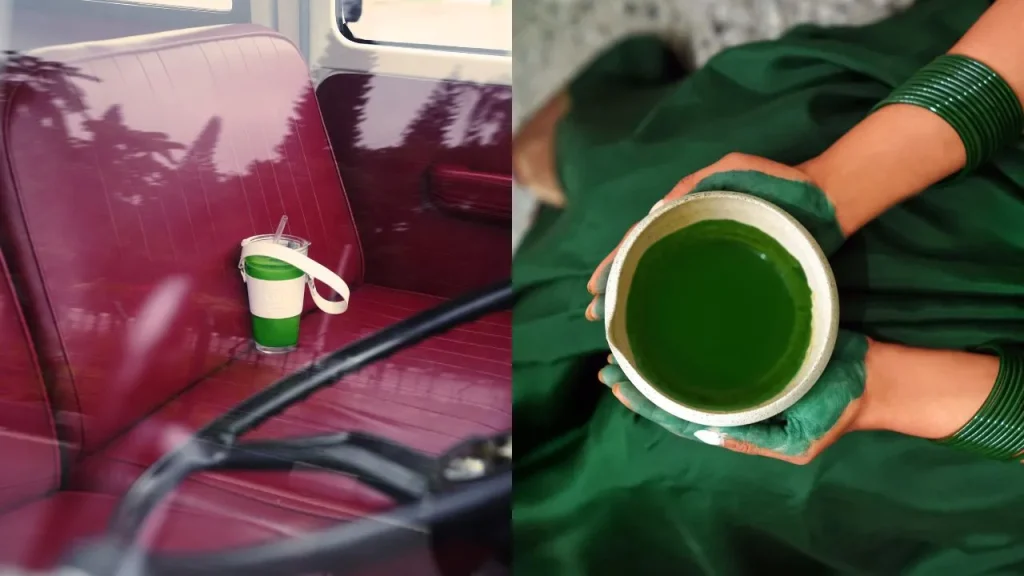
The name Ela Matcha came to Rachel David by chance. While she was at a restaurant asking the waiter for another “ella,” the connection clicked in her mind. She recalled that “ela” means leaf in Malayalam, and since matcha is ground green tea leaf, it felt like the perfect fit. Shortly after this realisation, Rachel collaborated with a designer from Bangalore to bring her idea to life, incorporating the Malayalam script into the logo. The result is a brand identity that is both modern and rooted in tradition. “I wanted something that honours our roots while being global,” she explains.
You might be surprised to learn that Rachel didn’t like the taste of matcha when she first tried it. However, her curiosity outweighed her initial judgment. She travelled, conducted research, and tasted different varieties, discovering that matcha is deeply influenced by both technique and origin. “The way matcha is prepared makes a significant difference in its flavour,” she explains. “I went through a lot of research and development on my own to find a version I enjoyed.” Ultimately, she found the matcha that emphasises vibrant flavour and mouthfeel. Today, Ela Matcha sources ceremonial-grade matcha from Shizuoka, Japan, which is shade-grown for 21 days before harvest.
Check Out: Kallu & Co. – The First Kerala Restobar in Paris
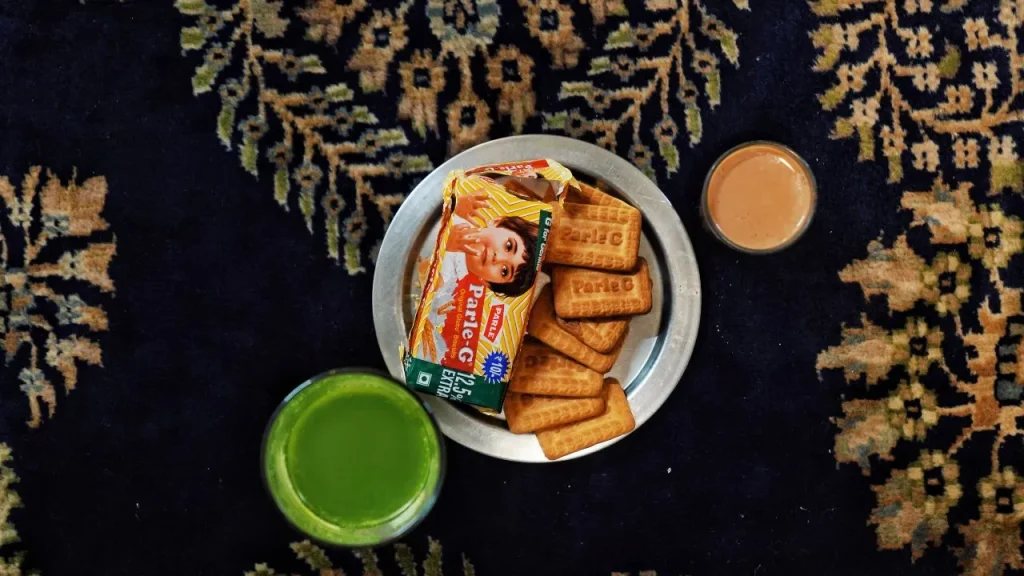
Rachel prefers drinking her matcha with oat milk because it adds a creamy note without overwhelming the leaf. “Dairy dulls the benefits,” she explains, noting that matcha can be easy on the gut and that plant milks preserve that quality. She also experiments with coconut water, a non-dairy, India-native pairing that fits both taste and the reality of many Indian customers who avoid milk altogether.
She recognises that matcha is not yet part of the everyday repertoire for many people here. “It will take time for people to drink straight matcha the way the Japanese do,” she says, noting that in Japan, matcha is often consumed as usucha or koicha, just powder and water, without milk or sweeteners, and sometimes as a meditative practice. In India, the bridge will likely be milky variations and inventive pairings that ease the palate.
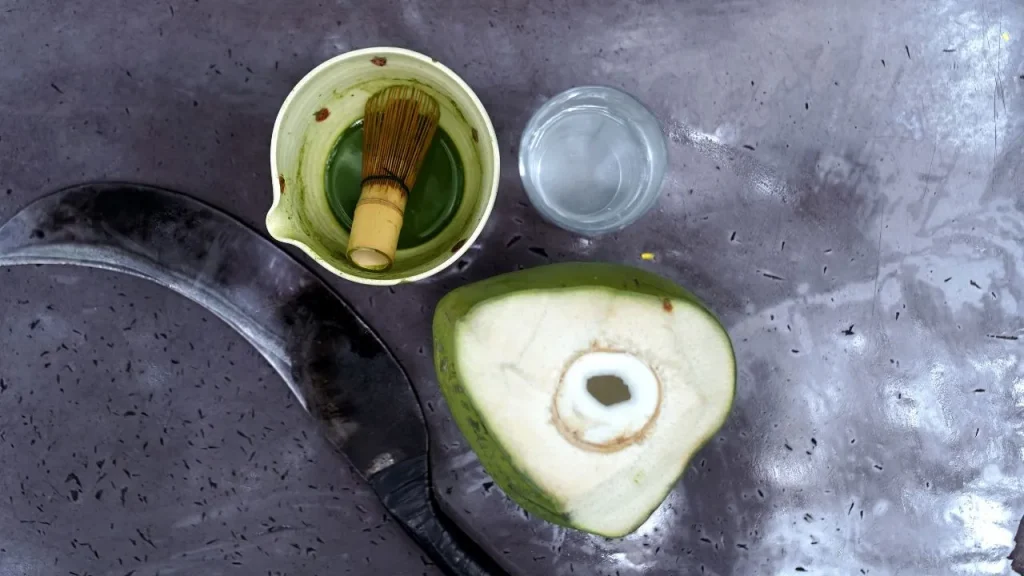
Just like how she associates coffee with community and bringing together people, she describes Ela as a pathway for conversations, a way for strangers in different cities to connect. “Everything I do comes back to community,” Rachel says. “Someone in Goa orders my matcha, we start chatting, and now we’re friends. That’s the kind of brand I want Ela to be; one that brings people together.” She wants to keep doing events to test ideas, to build an IP around matcha experiences that can be replicated in cities.
I have no doubt that Rachel David will grow Ela Matcha into something far beyond a beverage brand. It will become a meeting ground for people who love matcha, for those discovering it for the first time, and for anyone who simply enjoys slowing down to share a moment. That’s the kind of close-knit community Rachel David is trying to build, and to me, that’s where the true beauty of her brand lies.

